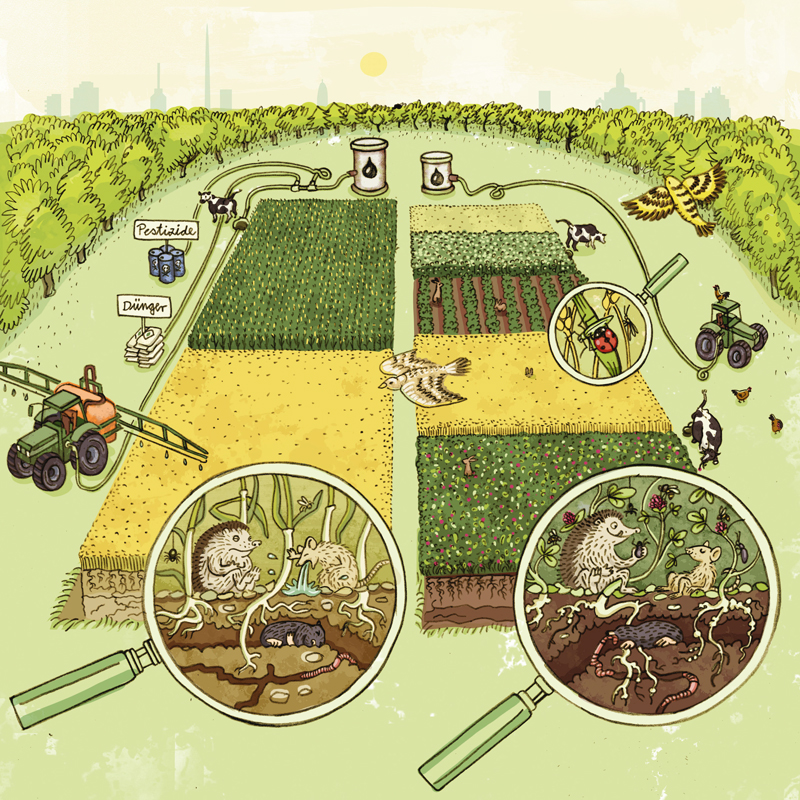Chemicals in the field

Will artificial fertilisers and pesticides save us from hunger?
Artificial fertilisers and synthetic pesticides were introduced after the First World War and have dominated industrial agriculture worldwide since the 1960’s. They offer the promise of high yields with minimal labour, particularly in monoculture systems. However, the widespread use of these chemicals has severe consequences. Traces of pesticides can now be detected almost everywhere, posing threats to biodiversity and human health. This ongoing battle waged against nature, with the latest weapon in the arsenal being genetic engineering, has led to natural resistance arising in plants, insects, and fungi, making it an unwinnable fight in the long term.
Artificial fertilisers are among the leading drivers of greenhouse gas emissions, mainly due to their high energy consumption and the release of nitrous oxide. Their use disrupts the natural nutrient balance in the soil, makes crops more susceptible to diseases, and increases nitrate content in groundwater. Excess fertilisers also suffocate lakes and rivers, causing eutrophication and creating dead zones along many of the world’s coasts.
The alternative to chemicals is to use agro-ecological and organic cultivation methods that increase the soil fertility by building up humus. Approaches using mixed crops and crop-rotation instead of monocultures, as well as a variety of targeted individual measures, help to avoid pesticides. These methods are usually more labour-intensive and require more skill and care. However, they are worthwhile for the climate, biodiversity in the fields and for the quality of the products.
